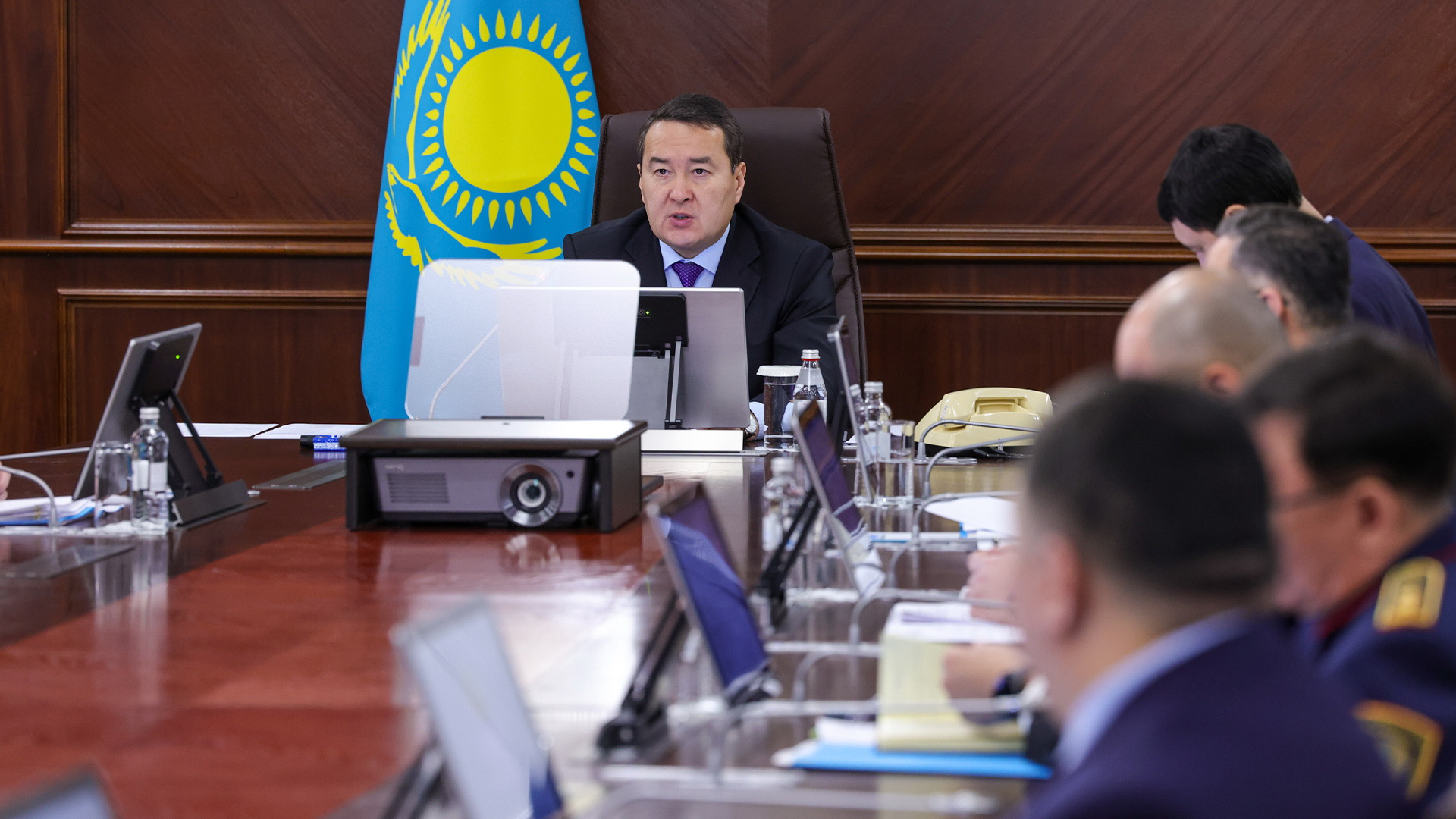ASTANA – Kazakhstan plans to launch 170 projects in the food industry, construction, machine building, metallurgy, and other sectors this year, Kazakh Prime Minister Alikhan Smailov said at an Oct. 3 government meeting dedicated to the manufacturing industry, reported the Prime Minister’s press office.

Alikhan Smailov at an Oct. 3 government meeting dedicated to the manufacturing industry. Photo credit: primeminister.kz.
Implementing the projects within the Industrialization Map would create about 12,500 permanent jobs, Smailov emphasized.
According to him, a list of the largest projects is under preparation for establishing high processing clusters in oil, gas, and carbon chemistry, deep processing of metals, uranium industry, machine building, and production of auto components and fertilizers, among other priority areas.
The Prime Minister added that this work will predominantly use domestic resources and off-take contracts potential.
Projects on the production of butadiene and polyethylene are underway, while the work on manufacturing gas detectors, pumps, and pressure sensors has commenced.
The International Center for Development of Oil and Gas Engineering is actively involved in localizing international companies’ production and technology transfer. So does the defense sector, which is supposed to establish the Defense Industry Complex Development Fund to support domestic enterprises by the end of this year.
Smailov mentioned a draft comprehensive plan that is currently being prepared to increase production in the machine-building industry more than twofold, boost exports almost threefold, and raise investments in fixed assets by 1.5 times.
The Prime Minister spoke about a light industry roadmap, which will be updated this year with such measures as compensation of investment costs during the creation of textile enterprises and support for domestic producers in government procurement.
The manufacturing sector is the third-largest contributor to Kazakhstan’s economy, accounting for 13.4% of GDP last year, with products launched at a value of 21.1 trillion tenge ($44.2 billion).
Over the past eight months, the manufacturing industry’s production volume has grown 3.1% to 14 trillion tenge ($29.3 billion).
